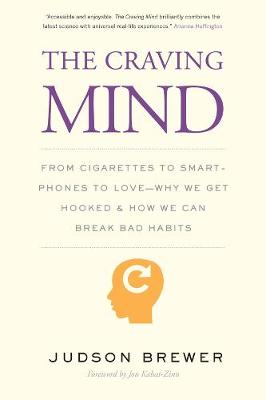
Joséphine
Written on Nov 10, 2017
Initial thoughts: The Craving Mind was a little confusing in terms of its stance towards mindfulness. On one hand, mindfulness was presented as a mental state underpinned by psychological study. On the other, a fair bit of Buddhist teachings were drawn upon without ever making clear the links between Buddhism and the origins of mindfulness. I already knew that mindfulness was historically rooted in Buddhism before gaining popularity beyond, but not much more. When Buddhism came up in The Craving Mind, I expected to gain more insight. Nope.
That being said, The Craving Mind did address addictions — how they develop and why we carry on, even when we cognitively know that our addictions harm us, regardless of how much better we feel in the face of temporary reprieve. It also invites readers to take a closer look at habits that might have become addictions.
After finishing this book, I walked away with greater awareness about myself and the resolve to be in the moment, focusing on the things I'm currently doing. For example, rather than eating at my desk to save time, I will carve out proper meal times again during which I focus on my food. That should come with several benefits: enjoying my food properly, less snacking because I'll actually know how much I eat, and therefore less overeating. Also, mind wandering — my mind tends to go into overdrive, imagining a billion scenarios instead of actively working towards a specific desired outcome.
Given the benefits I reaped, I think The Craving Mind serves well as a self-help book but as book on psychology? Not so much. There's not enough explanation or theory for that.
